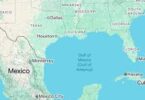TALLAHASSEE
Four years into an opioid epidemic that has claimed thousands of lives in Florida, Gov. Rick Scott officially declared a public health emergency Wednesday.
An emergency declaration gives Scott the power to spend immediately without the Legislature’s approval and for public health officials to move quickly to respond to a crisis. It also allows the state to accept a federal grant awarded two weeks ago for prevention, treatment and recovery services that will total more than $54 million over the next two years.
The declaration “says we agree this is a public health crisis and we need to do something,” said Mark Fontaine, executive director of the Florida Alcohol and Drug Abuse Association. “We should be able to be more deliberate as we work with people and get them into treatment and recovery.”
Opioids were the direct cause of death of 2,538 Floridians and contributed to an additional 1,358 deaths in 2015, the last year data is available.
As recently as last month, Scott declined to declare a public health emergency to address the epidemic, although Senate Democratic leader Oscar Braynon of Miami Gardens called on him to do so more than two months ago.
Instead, Scott told officials with the state departments of health, law enforcement and children and families to hold workshops in Palm Beach, Manatee, Duval and Orange counties, which have been most affected by the opioid crisis. The final workshop was Wednesday morning just before he declared the emergency.
“The individuals struggling with drug use are sons, daughters, mothers, fathers, sisters, brothers and friends and each tragic case leaves loved ones searching for answers and praying for help,” Scott said in a statement. “Families across our nation are fighting the opioid epidemic and Florida is going to do everything possible to help our communities.”
Scott’s declaration came as the Legislature finalizes a budget that snubs some of his top priorities, like increases in funding for Visit Florida and Enterprise Florida. Amid the frenzy of budget negotiations, lawmakers in both parties commended the governor for taking action, regardless of any delay.
“The governor has the power now with an emergency order to take over the funding in that area, so that’s one of the pluses there,” Sen. Jack Latvala, R-Clearwater, said. “I think the important thing is he’s done it, and not what day or how many days did it take him to do.”
Sen. Kevin Rader, a Palm Beach County Democrat, said he’s focusing on the future of the epidemic, not delays in declaring a state of emergency. But he warned that the state needs to put more money into ending the epidemic, beyond federal grants and policy the Legislature has pushed.
“The reason I concentrate on the money part is because it’s treatment,” Rader said. “Between housing and therapy, this is tens of millions into the hundreds of millions of dollars, and when this place takes it seriously is when we’re going to really stop the bleeding from happening.”
Under the emergency declaration, Scott instructed state Surgeon General Celeste Philip to keep a standing order of Naloxen, used to counteract opioid overdoses by first responders in emergency situations, on hand.
“All EMS will have access to that medication,” Fontaine said, “which means we’ll keep people alive.”
Contact Michael Auslen at mauslen@tampabay.com. Follow @MichaelAuslen







